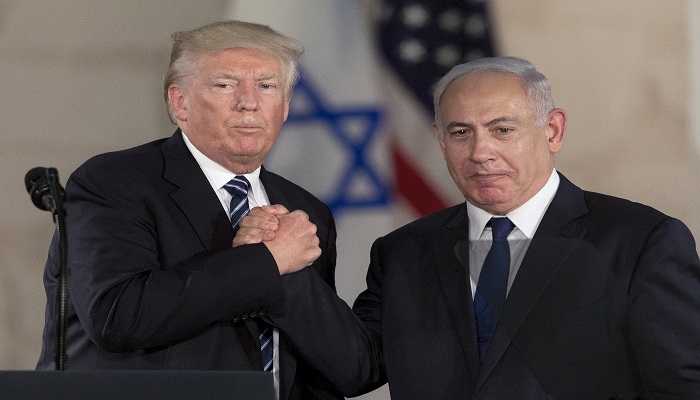
Despite warnings, Trump has forwarded his decision on the establishment of the US embassy. The latest decision is sure to create a negative impact on the society.
Trump informed Palestinian president Mahmud Abbas of his intention to move the US embassy from Tel Aviv to Jerusalem, Abbas’s office said yesterday.
The announcement prompted a slew of criticism from Arab leaders.
Ties between Saudi Arabia and the United States appeared to have warmed after the election of Trump, who chose the Gulf kingdom for his first overseas visit in May.
While the two countries have long been allies, Riyadh viewed Trump’s predecessor Barack Obama as overly friendly with its arch-nemesis Iran.
Saudi Arabia’s King Salman warned US President Donald Trump on Tuesday against moving the American embassy to Jerusalem, saying it will “inflame” the Muslim world.
“Such a dangerous step is likely to inflame the passions of Muslims around the world due to the great status of Jerusalem and the Al-Aqsa Mosque,” he told Trump in a phone conversation between the two leaders, according to the official Saudi Press Agency.
The king told the US president “that any American announcement regarding the situation of Jerusalem prior to reaching a permanent settlement will harm peace talks and increase tensions in the area,” the statement added.
Trump’s call to the Saudi monarch was one of a number he made to Middle East leaders on Tuesday to signal the US embassy move to the holy city would go ahead.
Amid a frantic round of telephone diplomacy, Trump told Palestinian Authority President Mahmoud Abbas and Jordan’s King Abdullah of his “intention” to relocate the US embassy to Jerusalem from Tel Aviv but crucially did not give a time-frame.
Trump also spoke with Egyptian President Abdel Fattah el-Sissi on the subject. Sissi’s spokesperson Bassam Radhi said Egypt’s leader told Trump the Egyptian position is “to maintain the legal status of Jerusalem in the framework of international… decisions.”
Sissi also affirmed “the necessity of not complicating the state of the region by taking measures that would undermine the chances for peace in the Middle East,” according to his spokesman.
Trump also spoke with Prime Minister Benjamin Netanyahu.
The US president’s phone calls to the Middle East leaders came as vociferous Arab and opposition to any possible US recognition of Jerusalem as Israel’s capital continued to mount, and as European leaders expressed concern about harm to Israeli-Palestinian peace efforts.
Seeking to garner international support for opposing the move, Abbas later on Tuesday spoke with a number of world leaders, including Russian President Vladimir Putin and Morocco’s King Mohammed VI.
In separate conversations with both leaders, Abbas stressed the need for “everyone to protect Jerusalem and its Islamic and Christian holy sites,” the official PA news agency Wafa reported.
Abbas’s spokesman told Reuters the PA president also spoke with Pope Francis and French President Emmanuel Macron and “urged them to intervene to prevent” the embassy move.
Abbas’s Fatah party and the Hamas terror group called for protests against the expected move, as the State Department has issued a travel warning barring US government employees from visiting Jerusalem’s Old City and the West Bank.
Fearing the possibility of violence at its embassies abroad if Trump goes ahead with the move, the State Department sent at least two classified cables to embassies and consulates warning them of potential danger and advising they ramp up security, the Politico news site reported Monday.
Israeli defense officials are also bracing for violent protests and terror attacks, with the Israel Police, Shin Bet security service and the IDF’s Central Command holding meetings in recent days to review possible scenarios in the event Trump follows through on his campaign promise to change America’s policy on Israel’s capital, the Yedioth Ahronoth daily reported Tuesday.

Post Your Comments